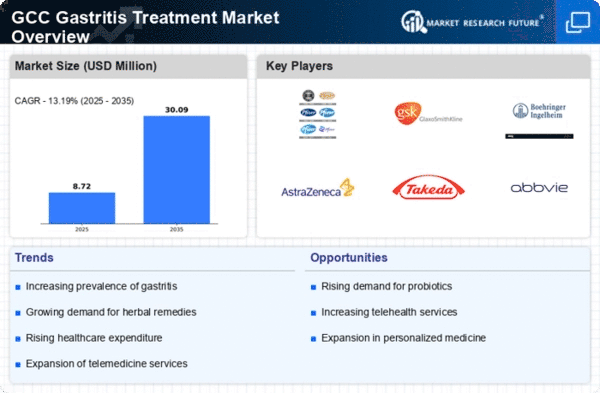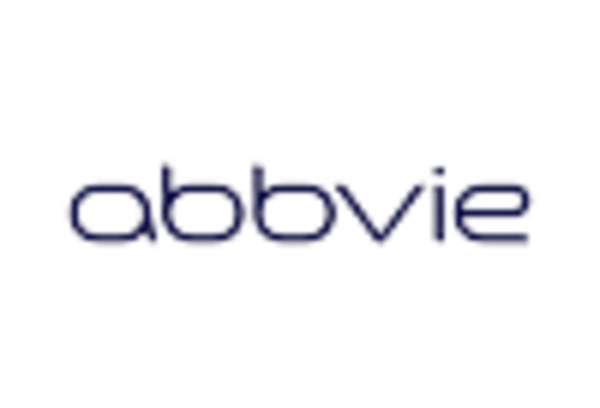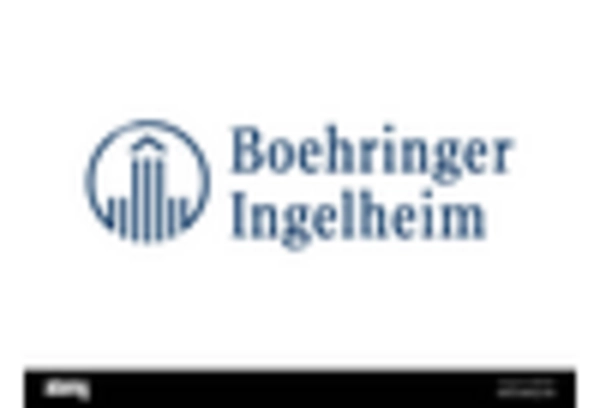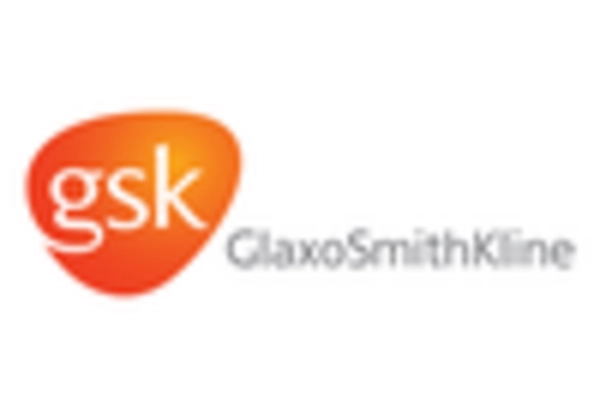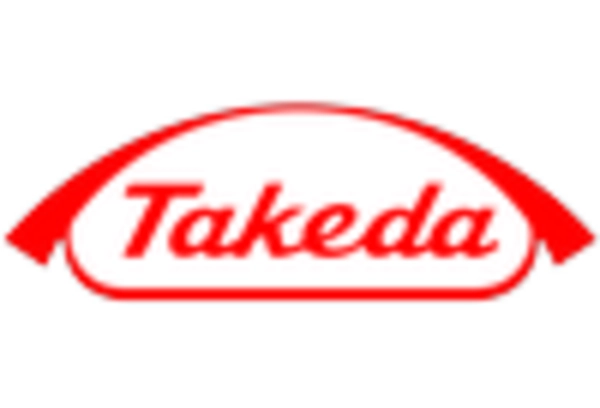Impact of Lifestyle Changes
Lifestyle changes in the GCC region are significantly influencing the gastritis treatment market. Urbanization, dietary shifts towards processed foods, and increased stress levels are contributing to a higher incidence of gastritis. As individuals adopt more sedentary lifestyles, the prevalence of gastritis is likely to rise, prompting a greater need for effective treatment solutions. This trend is driving healthcare providers to focus on lifestyle modification as a key component of gastritis management. The gastritis treatment market is expected to benefit from the growing recognition of the importance of dietary interventions and stress management techniques. Additionally, the integration of holistic approaches, such as nutrition counseling and stress reduction programs, is becoming more common in treatment plans. This multifaceted approach may enhance patient outcomes and satisfaction, further propelling the gastritis treatment market.
Rising Healthcare Expenditure
The increase in healthcare expenditure across the GCC countries is a significant driver for the gastritis treatment market. Governments are investing heavily in healthcare infrastructure, which includes the establishment of specialized clinics and hospitals that cater to gastrointestinal disorders. This investment is likely to improve access to quality healthcare services for patients suffering from gastritis. Additionally, as disposable incomes rise, individuals are more willing to spend on healthcare services, including consultations and treatments for gastritis. The overall growth in healthcare spending is expected to facilitate the availability of advanced treatment options and technologies, thereby enhancing the gastritis treatment market. Furthermore, the emphasis on improving healthcare quality and patient outcomes is likely to lead to increased funding for research and development in gastritis treatments.
Growing Awareness and Education
There is a notable increase in awareness and education regarding gastritis and its treatment options among the GCC population. Health campaigns and educational programs initiated by healthcare authorities are playing a crucial role in informing the public about the symptoms and risks associated with gastritis. This heightened awareness is likely to lead to earlier diagnosis and treatment, positively impacting the gastritis treatment market. Patients are becoming more proactive in seeking medical advice, which is expected to drive demand for various treatment modalities. Moreover, healthcare professionals are increasingly emphasizing the importance of patient education in managing gastritis, which may further enhance treatment adherence. As the population becomes more informed, the gastritis treatment market is poised for growth, with a potential increase in the utilization of both pharmacological and non-pharmacological interventions.
Advancements in Treatment Options
Innovations in the gastritis treatment market are significantly influencing its growth. The introduction of new medications, including proton pump inhibitors and H2-receptor antagonists, has improved treatment efficacy. Additionally, the development of combination therapies that target multiple pathways of gastritis is becoming more prevalent. These advancements not only enhance patient outcomes but also attract healthcare providers to adopt newer treatment protocols. The market is witnessing a shift towards more effective and safer treatment options, which is likely to increase patient compliance and satisfaction. Furthermore, the integration of technology in treatment, such as digital health solutions for monitoring and managing gastritis, is expected to create new opportunities within the gastritis treatment market. As a result, the overall landscape of treatment options is evolving, which may lead to increased market penetration and growth.
Increasing Prevalence of Gastritis
The rising incidence of gastritis in the GCC region is a primary driver for the gastritis treatment market. Factors such as dietary habits, stress, and lifestyle changes contribute to this increase. Recent studies indicate that approximately 30% of the population in GCC countries experiences some form of gastritis. This growing prevalence necessitates effective treatment options, thereby expanding the market. Healthcare providers are increasingly focusing on diagnosing and managing gastritis, which is likely to enhance the demand for various treatment modalities, including medications and lifestyle interventions. As awareness about gastritis and its complications grows, patients are more inclined to seek medical advice, further propelling the gastritis treatment market. The healthcare infrastructure in GCC is also evolving to accommodate this demand, with more specialized clinics and gastroenterology services emerging.


